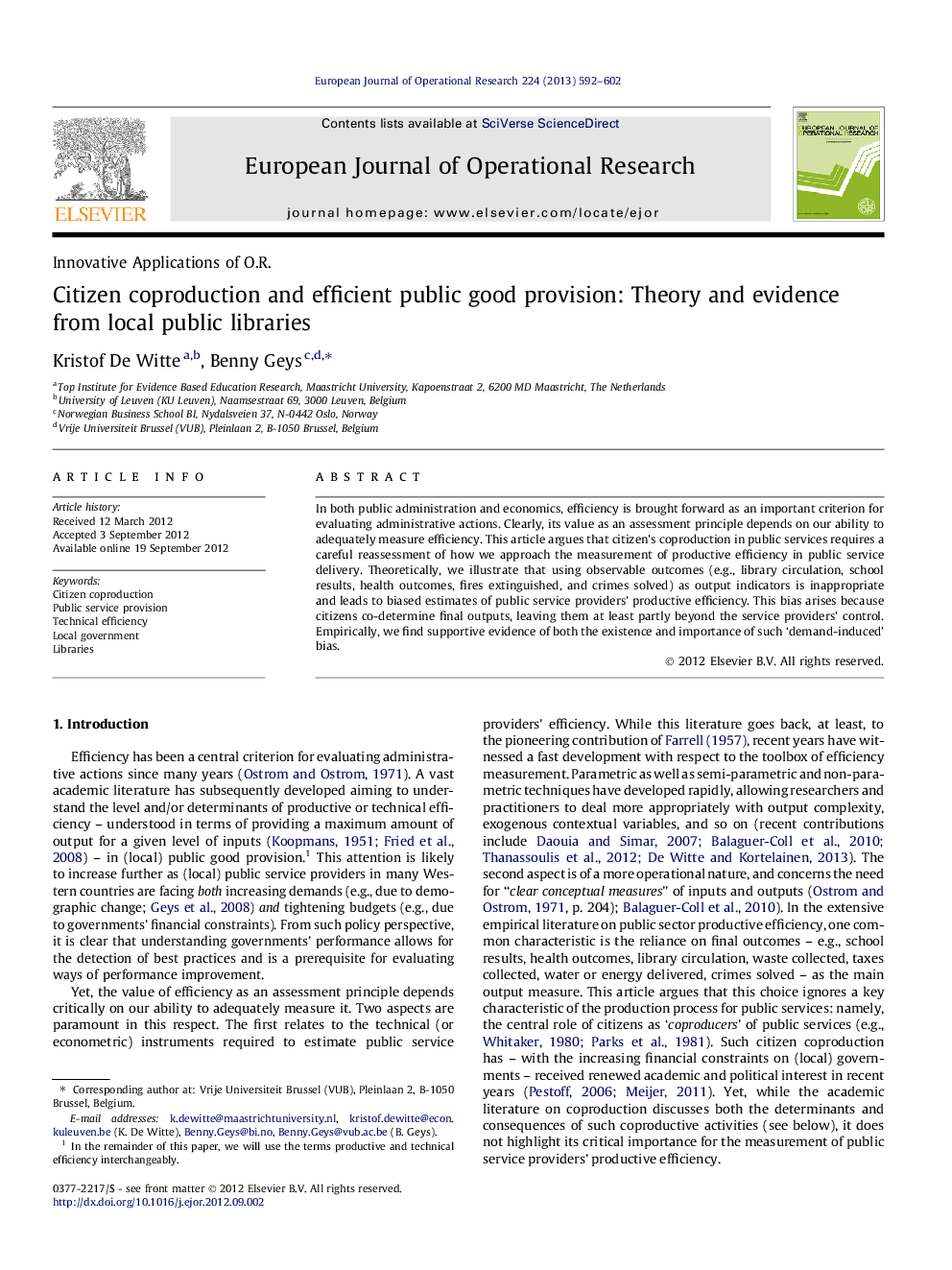| Article ID | Journal | Published Year | Pages | File Type |
|---|---|---|---|---|
| 480091 | European Journal of Operational Research | 2013 | 11 Pages |
In both public administration and economics, efficiency is brought forward as an important criterion for evaluating administrative actions. Clearly, its value as an assessment principle depends on our ability to adequately measure efficiency. This article argues that citizen’s coproduction in public services requires a careful reassessment of how we approach the measurement of productive efficiency in public service delivery. Theoretically, we illustrate that using observable outcomes (e.g., library circulation, school results, health outcomes, fires extinguished, and crimes solved) as output indicators is inappropriate and leads to biased estimates of public service providers’ productive efficiency. This bias arises because citizens co-determine final outputs, leaving them at least partly beyond the service providers’ control. Empirically, we find supportive evidence of both the existence and importance of such ‘demand-induced’ bias.
► Valid estimates of technical efficiency are vital to assess paths to improved performance. ► Ignoring citizens’ co-production in public good production induces biased efficiency estimates. ► Empirical evidence supports the existence and importance of such ‘demand-induced’ bias.
